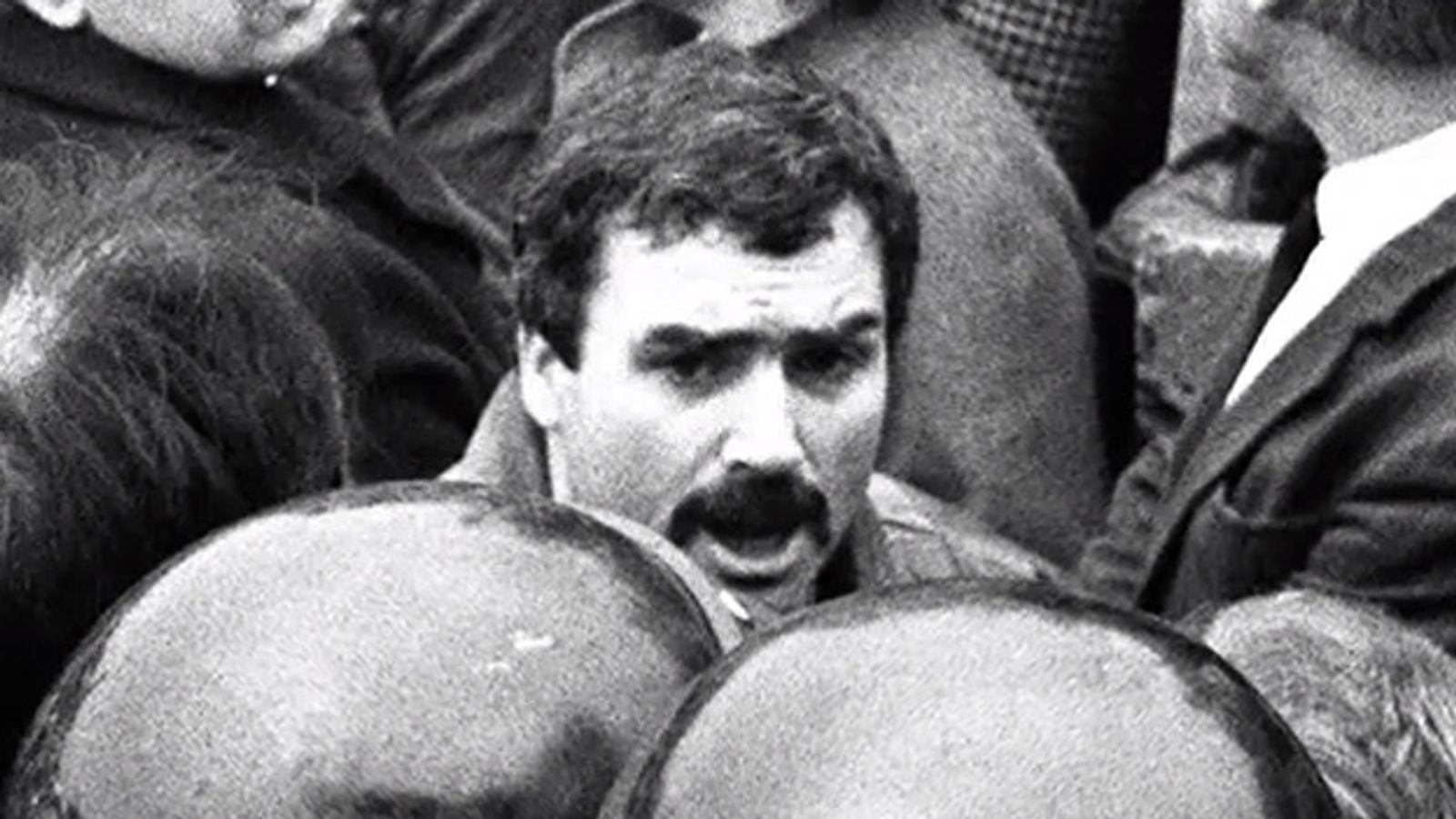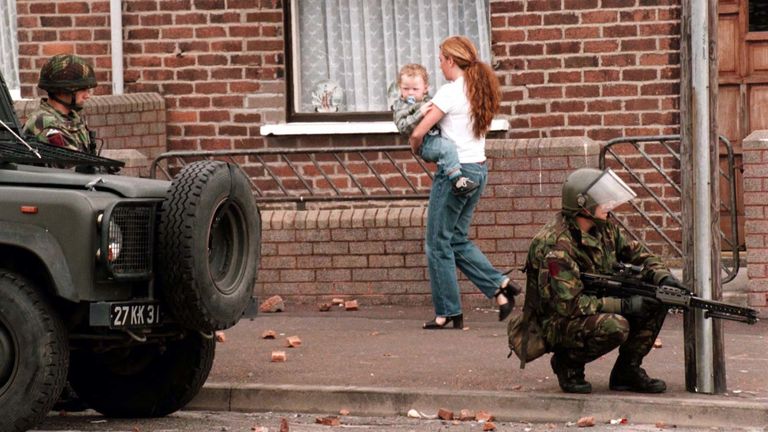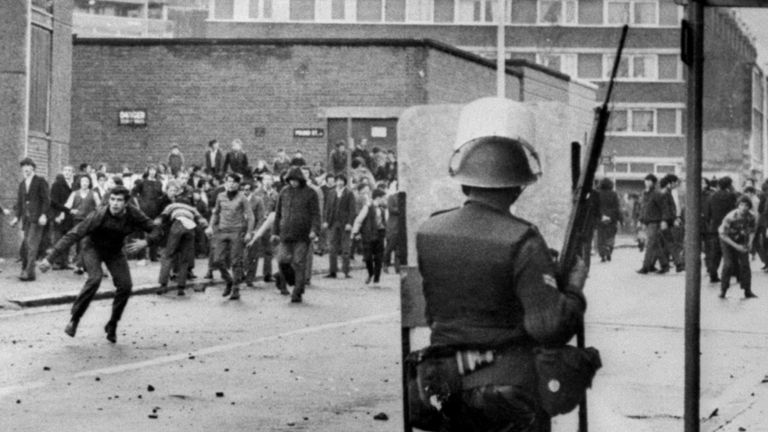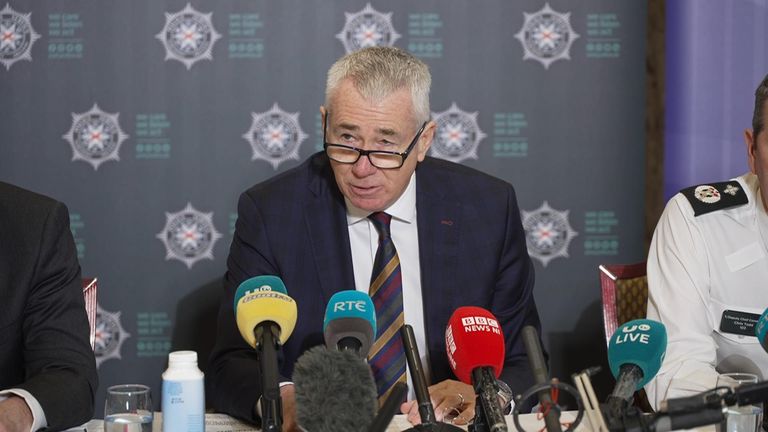Stakeknife: More lives lost than saved in use of British spy who ran IRA ‘nutting squad’


A report into the top British mole inside the IRA has concluded his actions probably resulted in “more lives being lost than saved”.
Freddie Scappaticci, codenamed ‘Stakeknife’, headed the IRA‘s “nutting squad”, a unit tasked with hunting informants, but was himself operating as a spy for British intelligence.
The seven-year investigation found the security forces were frequently aware of imminent abductions and murders but failed to protect those at risk.
As a result, preventable deaths occurred with their knowledge and those responsible were not brought to justice and were instead left free to reoffend.
The interim report stopped short of confirming Scappaticci as Stakeknife, but it made clear:
• He did exist and was an individual rather than a collective of different agents as has been speculated
• He was involved in “very serious and wholly unjustifiable criminality”, including murder
• Claims his intelligence saved “countless” or “hundreds” of lives were exaggerated
• The number of lives he saved is between high single figures and low double figures
It said: “Victims were not protected and terrorists were not subjected to criminal justice.”
Please use Chrome browser for a more accessible video player
1:22
‘Generational trauma’ over UK’s IRA mole
A former defence chief once branded Scappaticci “the goose that laid the golden eggs” and claimed his actions had saved hundreds of lives.
But the investigation found those claims to be “inherently implausible… a comparison rooted in fables and fairy tales”.
Advertisement
The report called on the UK government to acknowledge many murders were avoidable and to apologise to bereaved families.

It acknowledged the “exceptional stressful” operating climate the security forces worked in and that handlers often faced dilemmas where there was “no right answer”
It went on: “State agents do need to be protected through anonymity and secrecy, but that protection cannot confer de facto immunity or a right to act with impunity as that would be wholly incompatible with the rule of law and human rights,” the report said.
“Agents may sometimes engage in criminal conduct, but they do not have a free licence to break the law and should not be led to believe otherwise.”
But the most damning words in the 200-page document related to “the most shameful and evil” actions of the Provisional IRA (PIRA).
“It was PIRA that committed the brutal acts of torture and murder, each evil act being the epitome of cowardice,” it states.
It claims senior republicans condoned “and still condone” those activities and called on them to accept wrongdoing and to apologise.
The report also recommended the longest day, 21 June, be designated as a day to remember those killed or injured during the Troubles.
Read more:
Man accused of being ‘Stakeknife’ dies
Suspected informer admits extreme porn charges
Why the Good Friday Agreement remains transformative
Who was Stakeknife?
Scappaticci, the son of Italian parents, grew up in Belfast and had trials with Manchester City and Nottingham Forest.
He joined the IRA in the 1970s and was linked to 18 murders, but died last year, aged 77, having never faced trial for any of them.
Briefly interned without trial, he was recruited by the army’s Force Research Unit, which ran informants, and was its most valued asset.
He exemplified “the dirty war” between British intelligence agencies and the IRA – a world of espionage and turning a blind eye to murder.

‘Judge, jury and executioner’
Described as “judge, jury and executioner” of the IRA unit charged with identifying informants within, some estimate he directed up to 30 murders.
His activities became the focus of Operation Kenova, a £40m investigation, launched by Jon Boutcher, former chief constable of Bedfordshire in 2016.
He was appointed chief constable in Northern Ireland last year and passed the Kenova baton to Sir Iain Livingstone, former chief constable of Police Scotland.
Chief Constable Boutcher said: “What each legacy victim has endured should be acknowledged.
“I don’t believe Stakeknife is owed any debt of gratitude.”
Please use Chrome browser for a more accessible video player

1:30
‘UK govt should apologise’ over IRA mole
Sandra Peake works with the victims’ families and said they live with the shame of having loved ones branded as traitors.
“I’ve often said that when your loved one is killed at the hands of the other community, support is often there, but when your loved one is killed at the hands of people within your own community and with a label, it becomes a stigmatised death and that’s something which is very difficult for families to deal with,” she said.
Responding to the report, Northern Ireland First Minister Michelle O’Neill said: “The injustices and the tragedies of the past have left a deep legacy of suffering and trauma right across our society.
“We must never forget those who have died or been injured and their families. I am sorry for all the lives lost during the conflict without exception.
“People’s lives from every section of the community were trespassed upon during the conflict by British state forces, republicans, loyalists, and unimaginable grief and hurt and pain and suffering was inflicted.”
She added: “As a republican and a Sinn Fein leader and also as first minister, I am wholeheartedly committed to healing the wounds of the past, to building this better future that each and every one of us deserve.”
DUP leader Sir Jeffrey Donaldson questioned whether the £40m spent on the investigation could have been better spent funding policing in Northern Ireland.
He added: “It is even more disappointing that on the back of such an expensive investigation, the PPS has failed to secure a single prosecution.”
Operation Kenova submitted 28 files for consideration, but the Public Prosecution Service (PPS) found insufficient evidence to bring a case.


